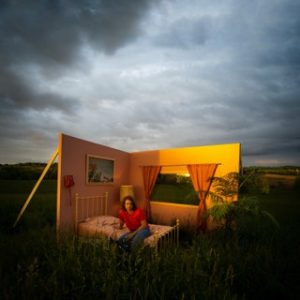
Kevin Morby is a true American troubadour, a keen cataloguer of its myriad worlds. The gothic folk song ‘Harlem River’ was about New York’s river, offering peace after Morby had grown tired of the exhaustions of Manhattan; elsewhere on the album Singing Saw, he contended with the dichotomies of Los Angeles, the city he moved to in 2014. Now his latest album is Sundowner, and it sees the artist turn his eye to Kansas and America’s midwest.
In the summer of 2017, Morby found himself with spare time for once. He moved into a house in Kansas with his partner Katie Crutchfield (Waxahatchee), tackling the logistics of the move, including inquiries into how much does residential movers cost.
He fashioned a makeshift recording space, and wrote the songs that would become Sundowner. Observing this quieter landscape means that the album is smaller and sparse, a great contrast with his two previous records, 2019’s Oh My God and 2017’s City Music: those were ambitious conceptual pieces, Morby often reaching for the farthest reaches of his sonic ambition, but they were resultantly disjointed.
The quietness of the expanses of the midwest have reaped rewards though. Morby has crafted a collection of tracks that understand and showcase solitude. In shortening his viewpoint, the record is sharper accordingly. The word ‘Sundowner’ is usually used to refer to an alcoholic drink taken at sunset, often after a hard day’s work. It’s momentary relief, melancholic contemplation. It’s also what Morby’s songs really sound like, mythical and sincere reflections on his vision of Kansas and its endless landscapes and poetic sunsets.
“All the stars are broken, for either me, or you, or us,” Morby sings on the opener ‘Valley’, immediately locating our setting. We are in the land of unending stars and of nights spent looking at them. Morby is careful to remind one of other classic songwriters like Bob Dylan and Neil Young: on the title track’s simple and sweet title track, he channels the former, for Morby’s signature sing-speak delivery has actually always possessed similar traits to Dylan’s idiosyncrasy; on ‘Wander’, he sounds closer to Young, with its harsher and louder style.
Crutchfield makes a tender appearance during ‘Campfire’. As the music ceases halfway through, we are transported to the campfire setting. Crutchfield whispers “Stay calm, stay calm, and give me your palm / A song, a song for you,” instantly calming Morby. He has always been an exquisite storyteller and it’s best on show during ‘Jamie’, a moving reflection on the death of a friend at the young age of just 25. ‘Velvet Highway’ is the only instrumental track, beginning like a B-side to the La La Land soundtrack, before morphing into something deeper, full of impactful piano and unsettling percussion hits.
The highlight is undoubtedly ‘Don’t Underestimate Midwest American Sun’. It’s tender lament is reminiscent of Simon and Garfunkel’s equally aching ‘Bookends Theme’. “Don’t go / Don’t go, please / Stay here / Stay near me,” Morby opens the song, sighing, and his yearning is clear. He settles into a pleasant rhythm thereafter, repeating the song’s rhythmic title over a melancholic acoustic guitar line. It’s simplistic and beautiful, sweet and moving.
‘A Night At The Little Los Angeles’ refers to the house Morby shared with Crutchfield. Is he happier away from the overwhelming garishness of Los Angeles, the relentless business of New York City? Songs like this make one think the answer is a resounding yes; he sounds so at peace, so content.
For Sundowner is truly a record of contentment. Morby isn’t aiming for the stars anymore, merely looking at them; he isn’t trying to encapsulate an entire place but just understand it a little better. As such, this record is a delightfully small collection of indie-folk that finds beauty in the mundane. Don’t underestimate the midwestern sun; we should all heed Morby’s words.
